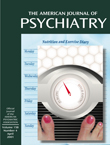Altered Pituitary-Adrenal Axis Responses to Provocative Challenge Tests in Adult Survivors of Childhood Abuse
Abstract
OBJECTIVE: Early adverse life events may predispose individuals to the development of mood and anxiety disorders in adulthood, perhaps by inducing persistent changes in corticotropin-releasing factor (CRF) neuronal systems. The present study sought to evaluate pituitary-adrenal responses to standard hypothalamic-pituitary-adrenal axis challenge tests in adult female survivors of childhood abuse with and without major depressive disorder. METHOD: Plasma ACTH and cortisol responses to the administration of 1 μg/kg ovine CRF and plasma cortisol responses to the administration of 250 μg ACTH1–24 were measured in healthy women without early life stress (N=20), women with childhood abuse without major depressive disorder (N=20), women with childhood abuse and major depressive disorder (N=15), and women with major depression but no early life stress (N=11). RESULTS: Abused women without major depressive disorder exhibited greater than usual ACTH responses to CRF administration, whereas abused women with major depressive disorder and depressed women without early life stress demonstrated blunted ACTH responses. In the ACTH1–24 stimulation test, abused women without major depressive disorder exhibited lower baseline and stimulated plasma cortisol concentrations. Abused women with comorbid depression more often suffered from posttraumatic stress disorder and reported more recent life stress than abused women without major depressive disorder. CONCLUSIONS: These findings suggest sensitization of the anterior pituitary and counterregulative adaptation of the adrenal cortex in abused women without major depressive disorder. On subsequent stress exposure, women with a history of childhood abuse may hypersecrete CRF, resulting in down-regulation of adenohypophyseal CRF receptors and symptoms of depression and anxiety.



